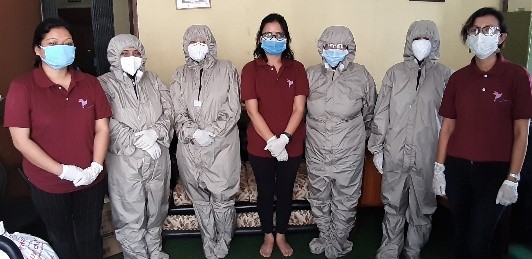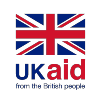The last 15 years has seen a massive expansion into Adult Entertainment Sectors (AES) in Nepal – not for one reason alone, but coupled with multiple issues (including political instability, migration, natural disaster). Now, compounded with the global pandemic evidence shows that the adolescents and young people engaged in the AES are struggling to access support and remain more vulnerable than ever.
In Nepal, COVID-19 has seriously affected the entertainment, hospitality and tourism sector. As businesses have been forced to go into lockdown it has affected the employers, employees and many lives directly and indirectly associated with these businesses. The CLARISSA Nepal team has explored the impact of COVID19 on the Adult Entertainment Sectors (AES). In particular, we found that the people involved in AES are struggling to get access to relief support provided by the state and NGOs. Importantly, given the nature of interaction people have with each other in this sector, they are also not receiving hygiene and nutritional supplements as part of the relief support.
A moment to build trust and rapport
Working with consortium partners, CLARISSA Nepal decided to take this moment to build a rapport and trust with organisations working in AES. Going forward this will enable us to facilitate the participatory action research activities which are fundamental to the research of this programme. These include life story collections, action research process and project development and implementation in future work.

We worked with nine organisations that understand the sector deeply: Biswash Nepal, Change Nepal, WOFOWON, Shakti Samuha, CAP Nepal, Chori, OVN, For the One and Raksha Nepal.
Providing COVID relief kits
Based on our joint meeting and coordination effort, we distributed 244 COVID relief kits (i.e. hygiene and nutritional supplements) to minors, adolescents and young people engaged in the AES industry. To do this in a timely and rapid way, we distributed these kits via the different organisations’ premises, care houses and in the local neighbourhoods. We were very clear about our purpose to the organisations and beneficiaries, obtained verbal consent, use private hire vehicles, face masks, sanitiser, maintained physical distancing while distributing the relief kits.
For the CLARISSA programme, the relief distribution was a great milestone to introduce our work and rapport building for future operations – it also served an incredibly important and vital need. To continue this momentum, we have hosted a virtual meeting with all these agencies who generously supported in this activity to express our thanks. We received very positive remarks about relief kits and the process followed during the distribution.
Learning from our approach
At the core of our approach is to enable the organisations to take ownership of the process. They were at the forefront of the distribution and felt trusted to deliver the kits to the communities that they know so well. CLARISSA Nepal facilitated the process. Our learning from this period will be invaluable as design the next phase of the work in Nepal. Fundamentally, we know that even in a challenging and difficult situation we can work effectively without compromising our core value. It is possible to act, but we must maintain self-awareness, cautiousness, timely communication, transferring ownership, good coordination and cooperation.
